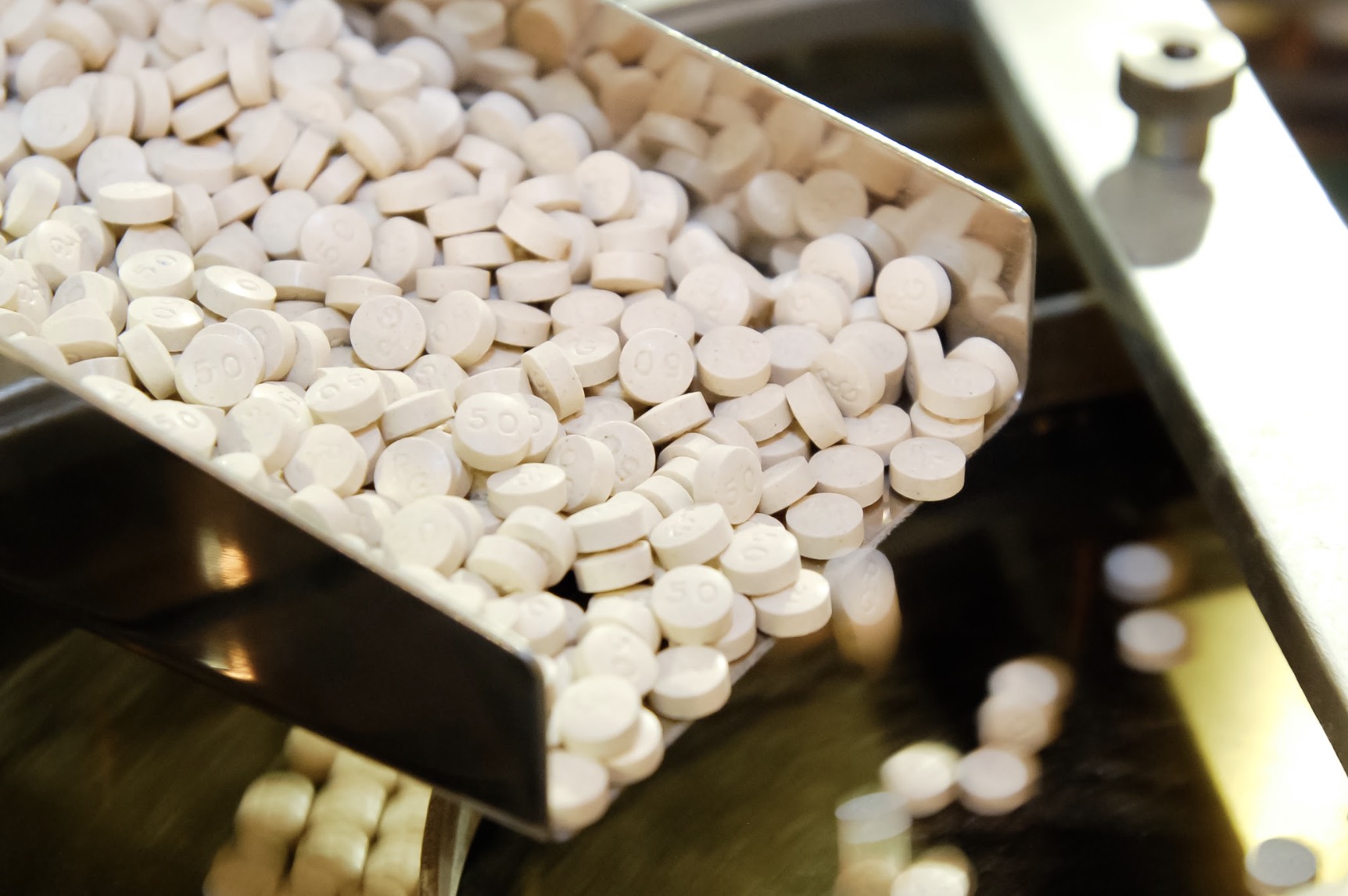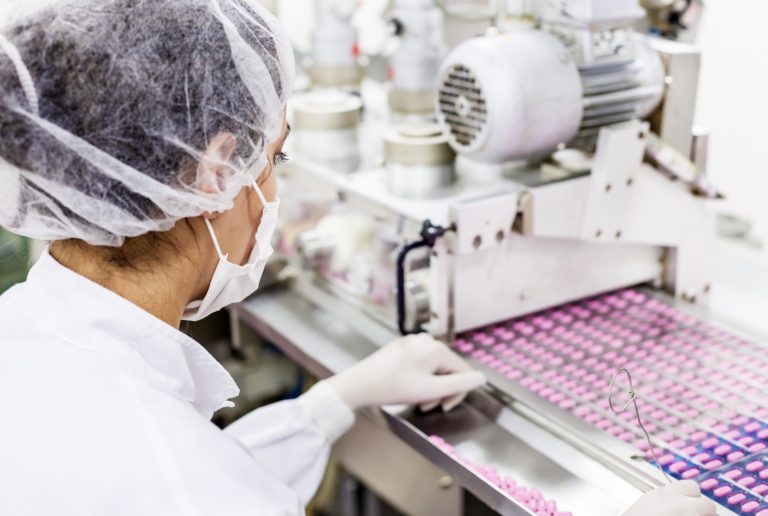The pharmaceutical industry has been improving the quality of human life by providing cures and medical treatment for various illnesses, from minor to severe and chronic conditions.
The world of pharmaceuticals is diverse and complex, employing a range of techniques for creating medicines that are indispensable to modern healthcare. From traditional manufacturing processes to more specialized methods, drug production meets specific patient needs and supports continuous advancements in the field.
Knowing the process of medicine production is crucial to health professionals and patients. It aids in a better understanding of how experts develop these drugs to treat medical conditions.
Here’s a closer look at various processes in medicine production.

Story Stages
Compounding
Compounding, an integral part of drug manufacturing, is a process to meet individual patient needs. This method plays a pivotal role in creating personalized medications for patients unable to consume standardized FDA-approved drugs due to allergies, swallowing difficulties, or unique dosage requirements.
The comparison of a compounding pharmacy vs outsourcing facility illuminates different aspects of personalized medicine. A compounding pharmacy involves altering or combining pharmaceutical ingredients through a patient’s prescription, including specifications for dosage form, strength, flavor, or route of administration. In contrast, an outsourcing facility manufactures large batches of compounded drugs, often for healthcare facilities.
Compounding serves multiple roles in healthcare, making it indispensable even if it isn’t as widespread as traditional drug manufacturing. Its benefits are manifold:
- Personalized treatments: Compounding allows for the customization of medication based on patient-specific factors, ensuring better therapeutic outcomes.
- Access to discontinued medications: When drug manufacturers discontinue certain medications due to low demand or profitability, compounding pharmacies can recreate these vital treatments, ensuring patients don’t go without necessary medication.
- Allergy-friendly options: For patients allergic to certain ingredients in standardized drugs, compounding pharmacies can formulate medicines without those allergens.
- Pediatric and geriatric care: Compounding can change the flavor of medicine to make it more palatable for children or alter the form of medication for elderly patients, improving the treatment experience.
Therefore, despite being a specialized form of drug creation, compounding occupies a critical space in healthcare delivery, providing solutions that cater to unique patient requirements and ensuring continuity of care.
Outsourcing Facilities
Outsourcing facilities form an essential pillar in the structure of drug production. Frequently engaged in compounding, these establishments stand apart due to several distinguishing features and roles:
- Large-scale compounding: Unlike traditional compounding pharmacies, outsourcing facilities engage in large-scale, non-patient-specific compounding. They produce high volumes of compounded medications for hospitals and clinics, catering to regular or high-volume medication needs.
- Stringent quality standards: These facilities follow strict regulations, ensuring the consistency and quality of drug production are on par with large-scale drug manufacturers and also using only medical plastic parts.
- Filling supply gap: Outsourcing facilities step in during drug shortages or when certain commercially available drugs are unavailable, ensuring treatment is not interrupted.
Outsourcing facilities hold a unique yet complementary position within the wider pharmaceutical industry, bolstering the healthcare system by ensuring the continuous supply of essential medications.
Traditional Drug Manufacturing
In contrast to the personalized approach of compounding, traditional drug manufacturing focuses on producing large quantities of standardized medications. This intricate and multistep process involves several key stages and components:
- Synthesis of active pharmaceutical ingredients (APIs): This is the initial step where chemists and pharmacists work together to produce the APIs, the substances in medicines that have therapeutic effects. The production of APIs is a complex process requiring meticulous attention to detail to ensure the correct chemical composition.
- Formulation: After the APIs are created, they are combined with excipients in a process known as formulation. Excipients are substances that help deliver the drug to the body, improve taste or stability, or enhance the drug’s overall effectiveness. These can include binders, fillers, preservatives, coloring agents, and flavorings.
- Final product creation: The formulation process culminates in the creation of the final product, which can take various forms, such as tablets, capsules, liquids, ointments, or injections. This stage often involves additional processes, such as coating tablets, filling capsules, or sterilizing injectable drugs.
Traditional drug manufacturing forms the backbone of the pharmaceutical industry. It ensures consistent, high-quality, and widely accessible medicines.
Biopharmaceutical Manufacturing
Biopharmaceutical manufacturing, or biomanufacturing, offers another method for drug production. Instead of synthesizing APIs chemically, this process uses living cells to produce biopharmaceutical drugs, such as vaccines, gene therapies, and monoclonal antibodies.
This technique is commonly used for complex molecules that are difficult to produce with chemical synthesis, such as proteins. It’s also vital to developing treatments for multiple sclerosis, rheumatoid arthritis, and cancer, among others.
This method offers several distinct advantages and features:
- Use of living cells: Instead of chemically synthesizing APIs, biomanufacturing harnesses the capabilities of living cells. These cells are genetically modified to produce specific proteins or molecules used as APIs.
- Complex molecules production: Biomanufacturing is often employed for producing complex molecules that are difficult or impossible to produce with traditional chemical syntheses, such as proteins, antibodies, or nucleic acids.
- Diverse range of products: The method enables the production of various biopharmaceutical drugs, including vaccines, gene therapies, monoclonal antibodies, and recombinant proteins.
Furthermore, many biopharmaceuticals target specific cellular processes or pathways, leading to more precise and targeted therapies. This precision can lead to better patient outcomes and fewer side effects than traditional drugs.
Conclusion
Drug manufacturing is a wide-ranging and intricate field. Each method holds unique advantages in meeting patient needs and advancing healthcare. By understanding these methods, you can appreciate the complexities of drug production and the ongoing progress in the sector. Improving healthcare becomes possible as experts continue to uncover and develop new ways of creating medicines.
